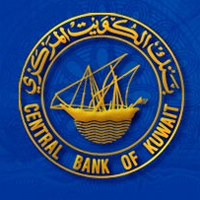KUWAIT: Kuwait's Central Bank governor has warned that authorities may have to change monetary policy if the government does not act urgently to cut a budget deficit caused by low oil prices. Mohammad Al-Hashel said the legislative and executive branches of the government needed in the next two months to prove to the rest of the world that public finances were sustainable, Finance Minister Anas Al-Saleh told state news agency KUNA yesterday.
If this does not happen, "it will reflect negatively on the credit rating of the state of Kuwait because of the negative consequences on financial institutions, and then it may affect monetary policy," Hashel was quoted as saying. The Central Bank governor did not elaborate on how monetary policy might change, but the Kuwaiti dinar, which is pegged to a weighted basket of the currencies of major trading partners, has been under pressure in the foreign exchange market since late last year.
The finance ministry projected in January that because of low oil prices, the government would run a deficit of KD 12.2 billion ($40.7 billion) in the fiscal year starting on April 1, nearly 50 percent higher than the deficit estimated for the current year, after government contributions to the sovereign wealth fund.
Earlier this month, Moody's Investors Service put the credit ratings of four Gulf oil exporters including Kuwait on review for a possible downgrade, citing the impact of cheap oil. HH the Amir has called for budget cuts and better management of spending, but with the most independent parliament in the region, it has been slower than several neighboring states to introduce austerity policies. - Reuters











